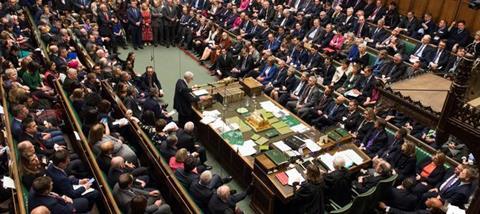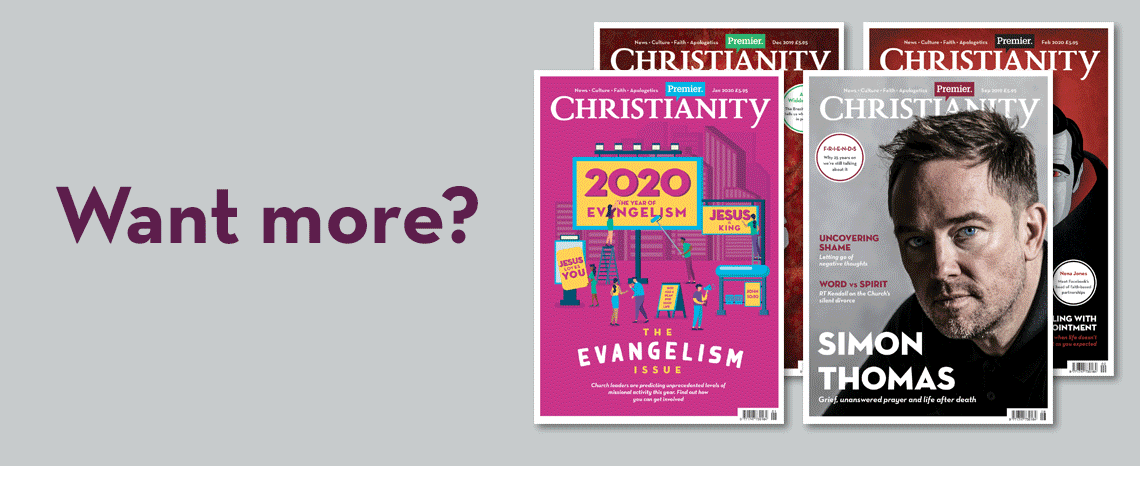
Parliamentary prayers are "not compatible with a society which respects the principle of freedom of and from religion". That's according to an Early Day Motion put down by Crispin Blunt and backed by a cross party group of my fellow MPs.
The motion states that “religious worship should not play any part in the formal business of the House of Commons.” But I strongly disagree. Here's why.
The myth of secular neutrality
The crux of the argument for abolishing Parliamentary Prayers is that by taking all references to religion and God out of politics and public life, we will then have a truly neutral public square. However, that would just be to replace one worldview and set of beliefs with another. As human beings, we all bring a set of beliefs about the world and the nature of human life to any debates around pursuing the public good.
Secularists might argue that their worldview is the best on which to base society, but they cannot do so by claiming neutrality. Rather than striving for a ‘neutral’ public square, we should instead recognise that we are increasingly becoming a pluralistic society, where a multitude of different beliefs and worldviews coexist. In a pluralistic society, freedom of belief is vital, yet this is not achieved by forcing all references to religion and God in public life to be pushed to one side.
The Christian basis for freedom
Given that there is no neutral public square, the key question is: which worldview can best offer its ideas of human flourishing while at the same time enabling a plurality of other voices to be heard?
At the heart of the Christian faith is the belief that all humans are equal and have inherent dignity and value because we are all made in the image of God. Thus, all people have a right to hold opinions and for those opinions to be heard, which are essential components of a healthy democracy. Many of the ideals which underpin our Western liberal democracy have roots in the Christian faith, including the freedom of the individual, the concept of mercy in judgment, natural human rights, and freedom of speech.
While societies structured on Christian principles have by no means always got this right, the track record of secular governments in the 20th Century shows that a move towards secularism does not guarantee a freer or more just society either.
The historical and cultural context
There is no escaping the fact that the UK has a rich Christian heritage. There is still an established church, and the 2011 census revealed that 59.3% of the population still regard themselves as Christian.
This Christian heritage is evident in politics as well. In his book Freedom and Order (2011), Nick Spencer argues that “the Bible has been the single most influential text in British political history.” Just as it is impossible to fully appreciate the English language and culture without a knowledge of the King James Bible, so we cannot properly understand both historic and contemporary politics without the Bible and Christian faith either. Walking around Parliament this influence is visible in the fabric of the buildings too. The floor of Central Lobby includes the first verse of Psalm 127 in Latin: “Unless the Lord builds the house, the builders labour in vain.”
The practice of holding prayers in Parliament dates back as far as 1558 and has been in place continuously since the reign of Charles II. For hundreds of years prayer has been a part of Parliamentary proceedings, and thus provides a link with the past and the way Parliament has evolved. We should not be too quick to abolish our traditions and heritage.
For those who do object, for whatever reason, there is no obligation to participate in the prayers. MPs can either choose to stand or wait outside the Chamber for the duration and still reserve their seat for that day’s debates.
Since the Early Day Motion was tabled, a number of MPs have spoken out in support of the prayers. Keith Vaz MP has tabled an amendment to the motion, recognising that the prayers “provide a time for reflection, perspective and calm ahead of the important work of the House.” Indeed, the prayer which is read by the Speaker’s Chaplain in the House of Commons asks that all those in positions of responsibility may “never lead the nation wrongly...but laying aside all private interests and prejudices keep in mind their responsibility to seek to improve the condition of all mankind.” At this time of political uncertainty, where tensions are running high, such a reminder and time of calm is more important than ever for us all.
Sir Gary Streeter MP is the chair of the Christians in Parliament All-Party Parliamentary Group.
Enjoyed that? Get more articles covering news, culture, faith and apologetics in every print issue of Premier Christianity magazine. Subscribe now for HALF PRICE (limited offer)



























